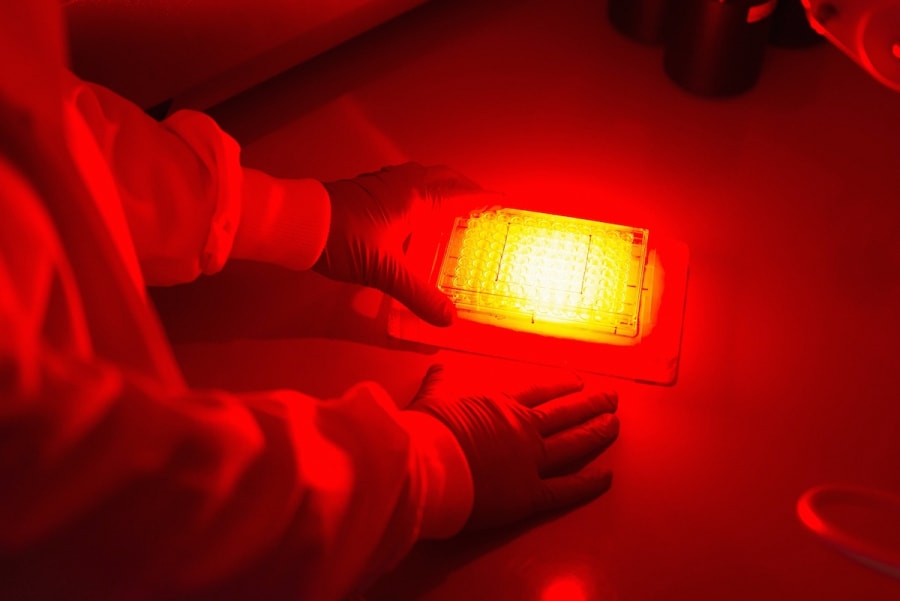Israeli researchers present 'groundbreaking' study using nanotech to improve breast cancer treatment
The Jewish state plays a prominent role in global medical research

An Israeli research team from Ariel University reported significant advances in the diagnoses and treatment of breast cancer by using nanotechnology.
A recent study conducted by the team shows that nanotechnology can be used to improve photodynamic therapy (PDT), which has been a safe and effective treatment for certain types of conditions for more than 100 years.
PDT gained acceptance as an alternative form of cancer treatment by using a drug activated by a laser or other light sources to kill cancer cells. The therapy has been applied in patients with large tumors in the digestive tract or lungs, effectively shrinking tumors to relieve pressure on organs or stop shortness of breath.
The therapy was recently applied to kill malignant cells in some breast cancer patients by using a combination of light, energy, oxygen and photosynthesizers.
While research has shown PDT to be a promising alternative to surgery, chemotherapy and radiotherapy for deep cancer treatment, up until now, the treatment had a limited ability to focus on areas close to the surface and small tumors. Light delivery treatment had proven more difficult because only near-infrared light in the 700 to 1,100 nm range can penetrate the tissue.
Ariel’s research team, under Dr. Refael Minnes of the Faculty of Natural Sciences Physics Department, has overcome these limitations by integrating nanotechnology into the treatment process.
Minnes and his team have created a drug that is stimulated by infrared light with a higher penetration than visible light. The distance between the drug and the harmonic nanoparticle is controlled, enhancing the potential of the treatment.
The research findings published in the journal Spectrochimica Acta Part A show that PDT treatments are expected to reach target tissues in volumes and depths previously inaccessible.
“The potential for successful PDT in the future is thus greatly improved,” the researchers said.
Ayan Barbora, the doctoral student who led the research said that nanotechnology “has a significant role in developing a more effective photodynamic therapy for cancer.”
A leading breast cancer specialist at a Jerusalem hospital has reportedly said, “The results of the research definitely have the potential to treat certain cancer conditions that we did not have the tools to treat until now. This is groundbreaking research and there is a good possibility that this treatment method will prove itself in clinical studies.”
The Jewish state plays a prominent role in global medical research.
Last week, researchers from the Weizmann Institute of Science discovered a potential new lung cancer treatment.
In June, Israeli researchers from Tel Aviv University and the Sheba Medical Center announced a scientific breakthrough in the treatment of lethal skin cancer.

The All Israel News Staff is a team of journalists in Israel.
You might also like to read this:

















